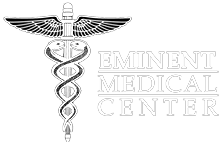Dallas and Richardson Migraine Specialist
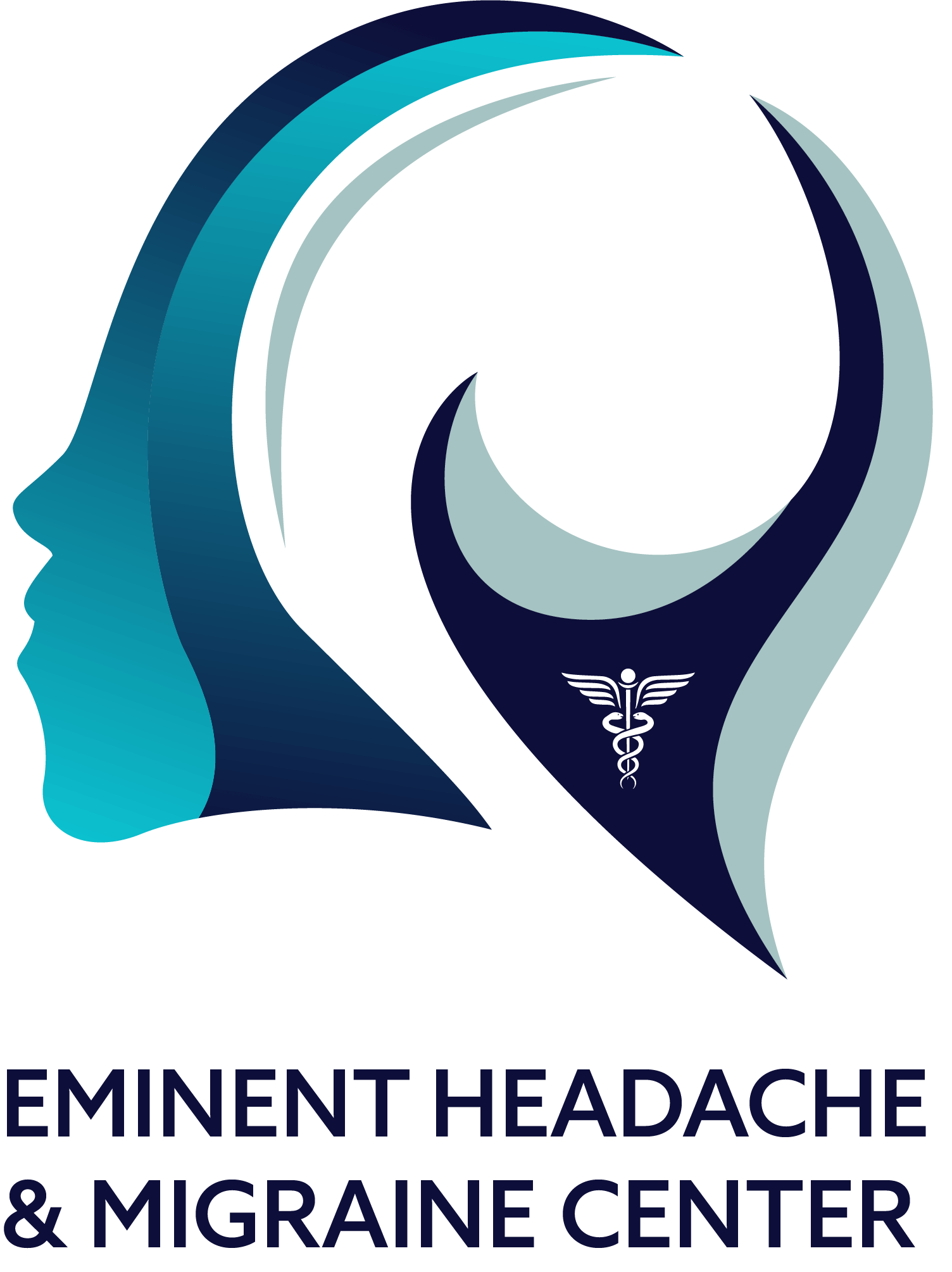
At Eminent Headache and Migraine Center, our Richardson and Dallas, TX migraine specialists are recognized leaders in headache and migraine care, providing patients with comprehensive solutions to manage symptoms effectively. Our team of DFW healthcare providers is committed to diagnosing and offering innovative treatment options tailored to meet the unique needs of our patients.
Don’t let migraines control your life; take the first step towards a pain-free future by calling 833-715-0251 to speak with a patient advocate today.
EXCELLENTTrustindex verifies that the original source of the review is Google. I just had my second knee replacement surgery within 12 months (Dr. Berry is awesome!) and both were done at Eminent Center. The entire staff is friendly and caring from the time you walk in until the time you leave! Big kudos to the nursing staff. From surgery prep to the operating room to recovery they really have great attitudes. Thanks so much to my floor nurses. They are fantastic!!! Great experience overall!!!Posted onTrustindex verifies that the original source of the review is Google. I been here 4 times for my procedures. The best and friendliest staffs a patient can ever ask for!! Keep up the good work!! Thank you!Posted onTrustindex verifies that the original source of the review is Google. The team made sure they communicated with me very well. I knew everything I had to do every inch of detail, the facility was great, and the surgery went great. The instructions and follow up was outstanding.Posted onTrustindex verifies that the original source of the review is Google. EVERYONE was superb here- from the minute you walk in the door to the minute you leave! Attentive care for my recent surgery- made the process go smoothlyPosted onTrustindex verifies that the original source of the review is Google. The staff was amazing during my surgery! Friendly, professional, and caring through my entire experience. As an RN myself it was refreshing to have such a great experience with quality staff! Thank you to all the nurses and staff that cared for me! I highly recommend using this facility!Posted onTrustindex verifies that the original source of the review is Google. The place Is clean with a very friendyatavvyPosted onTrustindex verifies that the original source of the review is Google. The staff was great. My wait time was minimal. Very nice facility. I would recommend them to anyone needing day surgery such as I did. Thank you Eminent Medical.Posted onTrustindex verifies that the original source of the review is Google. Absolutely the best to ever do it! So, kind and the sense of urgency and willing to make you feel comfortable was amazing, good job to the team and my family and I are greatly appreciative!!!Posted onTrustindex verifies that the original source of the review is Google. My care was amazing. The food was descent and the doctors went above and beyond to make sure surgery was successful.Posted onTrustindex verifies that the original source of the review is Google. The whole experience wasn't stressful at all. The staff was amazing.. from checking in to prepping for the surgery they were friendly and helpful. Also, the building is very nice and they even have a little Bistro right there for those that are waiting. Thank you for making things so easy!
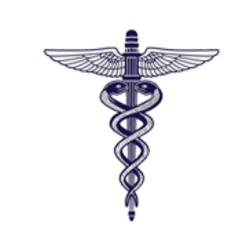
Migraine Treatment in Richardson, Texas ✓
Our Richardson headache specialist team is a group of dedicated healthcare providers specializing in creating a personalized treatment plan to treat migraines effectively. At Eminent Medical Center, our Richardson healthcare providers are integral to the migraine care process, offering expert evaluations and crafting tailored approaches that address each patient’s unique condition.
Migraine Treatment in Dallas, Texas ✓
Our Dallas headache specialist team provides exceptional migraine care at our headache and migraine treatment facility. At Eminent Medical Center, we’re committed to providing patients with an accurate diagnosis and a comprehensive understanding of migraine triggers by using advanced diagnostic tools, innovative therapies, and traditional techniques. Our Dallas neurology specialists are dedicated to providing relief and improving the quality of life for those affected by migraines and headaches.
Migraine Treatment: Best in Nation ✓
When it comes to treating migraines, a chronic pain condition that affects millions, finding the best treatment in the nation is crucial for those seeking relief. By focusing on personalized care, our Dallas and Richardson migraine specialist team works tirelessly to improve the lives of individuals battling this debilitating condition, making our headache and migraine treatment center one of the best in the nation for migraine management.
At Eminent Headache & Migraine Center, our providers offer a beacon of hope for individuals seeking comprehensive care for their migraine headaches. Our specialized team of DFW neurologists is dedicated to the latest migraine research, diagnosis, and treatment, ensuring patients receive the most advanced and effective care possible.
Migraine Partner Physicians
We are proud to collaborate with premier migraine partner physicians in locations across the US. Our partner physicians are rigorously selected based on their expertise in diagnosing and treating migraines, their use of innovative treatments, and their commitment to patient-centered care. Whether you’re seeking a consultation, diagnosis, or ongoing treatment for migraines, our network of specialists is here to provide support and expert care tailored to your needs.

Migraine Surgery Near Me
Migraine surgery is an innovative treatment option for patients who have not found relief through traditional methods. Our medical center, located in the Dallas and Richardson area, is proud to offer this cutting-edge approach to treating migraines.
Patients looking for a solution to their migraine headaches are encouraged to consult with our Dallas and Richardson migraine specialists. Referrals can be made easily through primary care providers or a neurologist familiar with your medical history. Our goal is to ensure that patients receive the personalized care they deserve, working closely with them to develop a treatment plan that addresses each patient’s unique needs.
Migraine Implant Surgeon in Dallas and Richardson, TX
The migraine implant is a groundbreaking advancement in the treatment of migraine headaches. This innovative device delivers mild electrical impulses to specific nerves associated with migraine pain, effectively disrupting the signals sent to the brain. This method has shown significant success in reducing the frequency, duration, and intensity of migraine headaches for many patients.
If you’re seeking an alternative solution to treat migraine, consult with our Dallas and Richardson migraine specialists to determine if the migraine implant could be the right option for you.
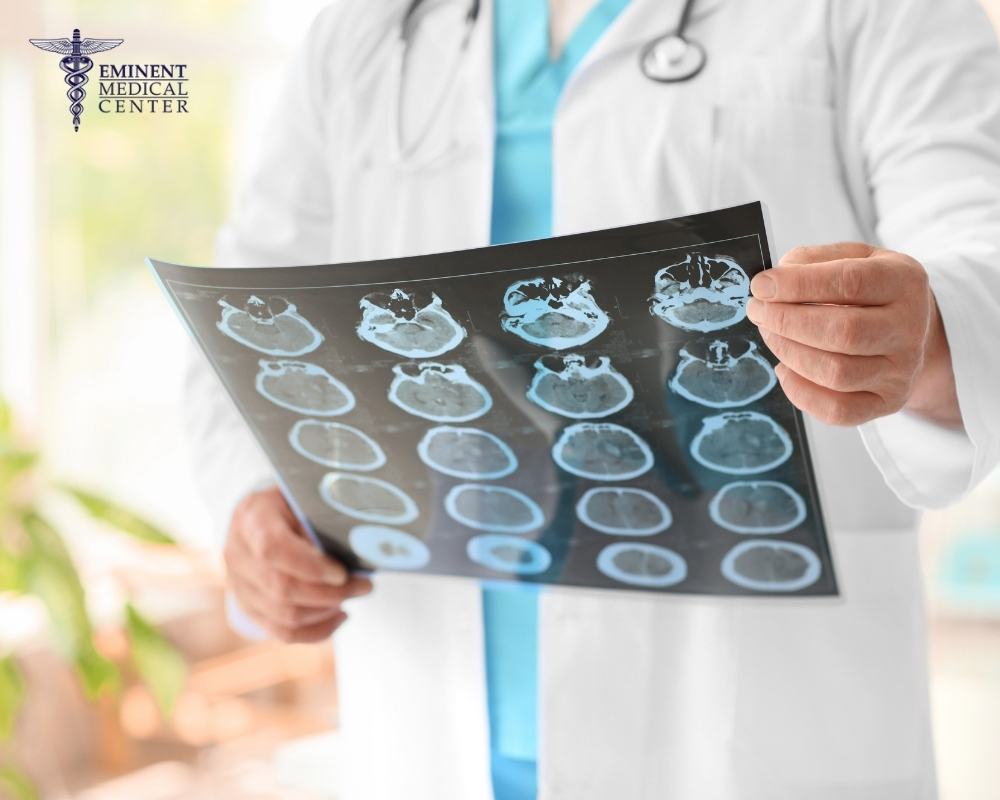
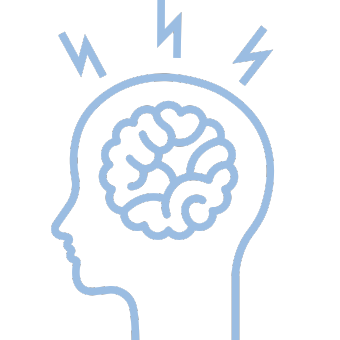
Migraine and Headache Disorders We Treat
We understand that migraine and headache disorders can occur due to a variety of factors, including specific migraine triggers unique to each individual. Through careful evaluation, an experienced DFW neurologist at Eminent Medical Center will develop a personalized treatment plan to reduce the frequency and severity of chronic migraines or headaches. We also facilitate easy referrals from your primary care doctor, ensuring prompt access to our specialized healthcare providers.
Headaches
The Dallas and Richardson headache specialist team at Eminent Medical Center treats the following, as well as other headaches.
Cervicogenic Headache
Cervicogenic headaches originate from the cervical spine or base of the skull, presenting as steady, non-throbbing pain in the head and neck. Causes include cervical osteoarthritis, herniated discs, or whiplash, with pain possibly radiating to the front or behind the eyes.
Chronic Daily Headaches
Chronic daily headaches occur 15 or more days each month, lasting over three months. They vary in intensity, with triggers such as stress, posture, or underlying conditions, and can significantly affect quality of life. Additionally, taking headache medication too often increases the risks of rebound headaches.
Cluster Headaches
Cluster headaches involve severe, stabbing pain around one eye or temple, often in cyclical patterns or clusters. The intense pain can cause redness, swelling, tearing, or nasal congestion and may be related to the hypothalamus.
Exertional Headache
Exertional headaches happen during or after physical activity, typically described as throbbing and affecting both sides of the head. These headaches are thought to result from increased blood flow during exertion and can be managed with lifestyle changes and pain relievers.
Hemicrania Continua
Hemicrania continua is a rare chronic headache with continuous, unilateral pain varying in intensity. It often involves autonomic symptoms on the same side as the headache, like red or teary eyes, nasal congestion, or ptosis.
Paroxysmal Hemicrania
Paroxysmal hemicrania involves severe, short-lived pain attacks on one side of the head, typically around the eye, temple, or forehead. The attacks last 2 to 30 minutes but are more frequent than cluster headaches, with accompanying symptoms like red eyes and nasal congestion.
Hypertension Headache / Intracranial Hypertension
Hypertension headaches are caused by elevated blood pressure or increased pressure within the skull, leading to dull, throbbing pain that worsens with activity or posture changes. They may be accompanied by other symptoms like vision changes or nausea, and managing hypertension is crucial to prevent complications.
Pressure Headaches
Patients with pressure headaches feel tightness or pressure around the forehead, temples, or back of the head, often resembling a tight band. Pressure headaches can result from stress, tension, or sinus congestion and are commonly associated with tension-type headaches.
Refractory Headaches
Refractory headaches persist despite multiple treatment attempts, affecting quality of life due to their resistance to conventional therapies. Patients often struggle with continuous headache pain despite trying various medications and lifestyle changes.
Spinal Headaches
Spinal headaches often occur after procedures like lumbar punctures or epidural injections due to cerebrospinal fluid leakage. They cause dull, throbbing pain that worsens when sitting or standing and may be accompanied by neck stiffness, dizziness, or nausea.
Tension Headache
Tension headaches are characterized by a dull, aching pain resembling a tight band around the head. They are usually triggered by stress, poor posture, or lack of sleep. Tension headaches are generally not severe but can affect daily activities.
Thunderclap Headache
Thunderclap headaches are sudden, severe headaches that peak within seconds to minutes and may indicate serious medical conditions like subarachnoid hemorrhage. They require an immediate medical evaluation to rule out life-threatening causes and ensure proper treatment.
Migraines
Migraines are a common and often debilitating neurological disorder characterized by recurrent episodes of moderate to severe headache pain, often accompanied by additional symptoms such as nausea, vomiting, sensitivity to light and sound, and visual disturbances.
Hemiplegic Migraine
Hemiplegic migraines cause temporary weakness or paralysis on one side of the body, along with severe headaches and other symptoms like visual disturbances and speech difficulties. They may resemble strokes and can be familial, linked to genetic mutations affecting brain ion channels.
Ocular Migraine
An ocular migraine affects vision, causing temporary disturbances like flashing lights or blind spots in one or both eyes, without always accompanying headaches. They likely result from blood vessel spasms or changes in blood flow to the brain’s visual cortex.
Vestibular Migraine
Vestibular migraines induce vertigo or dizziness alongside typical migraine symptoms like headache, nausea, and light sensitivity, stemming from abnormal activity in the vestibular system. Our Dallas and Richardson, TX vestibular migraine treatment provide patients with targeted care that helps reduce dizziness, improve balance, and manage recurring migraine symptoms.
Cerebrospinal Fluid Leak (CSF)
CSF leaks involve abnormal fluid loss from the spinal canal or skull base, reducing pressure around the brain and spinal cord due to trauma, surgery, or other causes. Symptoms include headaches, neck stiffness, nausea, and visual or hearing changes. Our Richardson and Dallas CSF leak treatment helps patients find relief through accurate diagnosis and targeted care.
Nervous System Disorders
Nervous system disorders encompass various conditions affecting the brain, spinal cord, and peripheral nerves, altering sensation, movement, cognition, and autonomic function. Examples of nervous system disorders include epilepsy, multiple sclerosis, and headaches like migraines.
Occipital Neuralgia
Occipital neuralgia causes chronic pain in the back of the head and behind the eyes due to irritation or compression of occipital nerves, triggered by muscle tension, trauma, or inflammation. Our Richardson and Dallas occipital neuralgia treatment options focus on alleviating nerve irritation and reducing recurrent head pain.
Temporomandibular Disorders
TMD affects the temporomandibular joint, contributing to migraines via jaw pain, muscle tension, and teeth grinding. Factors include jaw injury, arthritis, or misalignment.
Trigeminal Neuralgia and Neuropathy
Trigeminal conditions, such as trigeminal neuralgia and trigeminal neuropathy, involve intense facial pain, numbness, and tingling due to trigeminal nerve issues, potentially triggering migraines. Eminent Medical’s Richardson and Dallas trigeminal neuralgia treatment helps patients manage facial pain with tailored therapeutic approaches.

Diagnosis and Treatment for Migraine and Headache Pain
An accurate diagnosis and treatment plan requires a comprehensive approach tailored to each patient’s symptoms and medical history. Diagnosis typically involves a thorough evaluation by a Dallas or Richardson migraine specialist. Once diagnosed, treatment options may include both acute and preventive measures.
Trigger Point Injections
Minimally invasive injections relieve muscle pain and tension associated with conditions like tension headaches and myofascial pain syndrome by interrupting the pain cycle and reducing inflammation.
Botox for Migraines
FDA-approved Botox injections every 12 weeks prevent chronic migraines by blocking neurotransmitters involved in pain signaling, recommended for those experiencing migraines on 15 or more days per month.
Occipital Nerve Block
Temporary pain relief in the occipital region is achieved by blocking pain signals with injections, which are commonly used for headaches and migraines originating from this area.
Sphenopalatine Ganglion Block
This minimally invasive procedure interrupts pain signals from the trigeminal nerve, providing rapid relief for severe headaches like migraines and cluster headaches.
Trigeminal Nerve Block
Alleviates facial pain from conditions like trigeminal neuralgia by temporarily interrupting pain signals along the trigeminal nerve pathways.
Headache Infusion Treatment
IV infusion therapy manages severe headaches, including migraines, by allowing quicker absorption of medications into the bloodstream for faster and more effective relief.
Dihydroergotamine Infusion
Reserved for those with frequent, disabling migraines, this infusion therapy provides rapid and effective relief for migraine symptoms and is used for both acute treatment and prevention.
Other Treatments Our Dallas and Richardson Headache Specialist Offers
At Eminent Medical Center, we understand there is no “one size fits all” approach to treating headache disorders. That’s why we combine research with dedication to offer a range of treatment options to address various types of headaches and help you experience relief from headache symptoms.
Neuromodulation for Headache
Advanced techniques target specific areas of the brain or nerves involved in pain processing, disrupting abnormal pain signals and restoring normal function to reduce headache frequency and severity.
Physical Therapy for Headaches
Specialized techniques address muscular imbalances, tension, and posture issues contributing to headache symptoms, promoting proper alignment, muscle function, and flexibility.
Transcranial Magnetic Stimulation
Non-invasive magnetic pulses stimulate nerve cells in the brain, potentially reducing headache frequency and severity, offering promise for those unresponsive to other treatments.
Why Choose Eminent Headache Specialists in Richardson?
At Eminent Medical Center, our Dallas and Richardson headache specialists are committed to providing personalized and comprehensive care to improve your overall health and well-being. With decades of experience in treating various types of headaches, our team employs the latest advancements in headache medicine to tailor treatments to each patient’s specific needs.


Richardson Migraine Doctor
If you are seeking relief from migraines, look no further than our DFW migraine specialists. Our Dallas and Richardson migraine doctors provide you with expert care and personalized treatment plans. By choosing a Richardson migraine doctor at Eminent Medical Center, you’re opting for quality care delivered with compassion and expertise. Take the first step towards relief and schedule your consultation with our team today.
Richardson and Dallas Headache Specialist FAQs
What is Migraine Surgery?
Migraine surgery is a surgical procedure aimed at reducing the frequency and severity of migraine headaches. It involves a neurologist decompressing nerves in the head and neck to prevent migraine triggers.
What is a Sudden Sharp Pain in the Head That Goes Away Quickly?
A sudden sharp pain in the head that goes away quickly could be an “ice pick headache,” characterized by brief, intense stabbing pain. These pains often occur without warning and last for a few seconds.
What is a Sharp Stabbing Pain Behind an Eye That Comes and Goes?
A sharp stabbing pain behind the eye that comes and goes could be a cluster headache or an ocular migraine. These headaches can cause intense pain around the eye, typically occurring in cyclical patterns or clusters.
What is a Right Temple Headache?
A headache on the right side of your head in the temple region is often caused by tension, stress, or migraine. It may be a symptom of other conditions, such as temporal arteritis or a sinus infection.
Why Does My Head Hurt When I Bend Over?
If your head hurts when you bend over, it could be due to sinus pressure, increased blood flow to the head, or other underlying causes. Sinus infections, tension headaches, or migraines can trigger this pain.
Why Does My Head Hurt When I Lay Down?
If your head hurts when you lay down, it could be due to changes in blood flow, pressure on specific areas, or underlying conditions like sinus infections or tension headaches. This type of headache can also be a symptom of low intracranial pressure.
What is a Headache Above the Eyebrow Called?
A headache above the eyebrow is often associated with sinus headaches or frontal migraines. It could indicate sinusitis or other sinus-related issues causing pain in that specific area.
